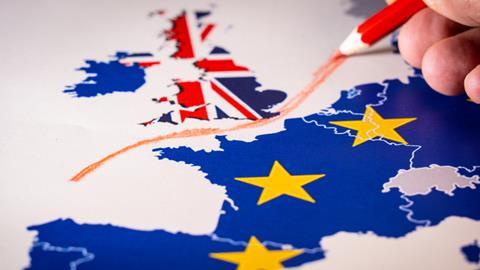EU food businesses supplying the UK will stop exporting next month unless the government overhauls new checking and inspection requirements on goods coming in, the Cold Chain Federation (CCF) warned.
It has written to Defra secretary Steve Barclay telling him the proposed border target operating model will jeopardise the UK’s food supply chain and send food prices soaring.
The CCF said the full border checks kicking in on 30 April posed a major challenge to the movement of temperature-controlled plants and ‘products of animal origin’, which included many types of meat and fish.
It urged the government to take action to mitigate the impact on the supply chain and minimise the threat to UK food security.
Phil Pluck, CCF chief executive, said: “From the end of April many EU food businesses supplying the UK are going to have a substantial new administrative burden and considerably higher costs to send temperature-controlled products here.
“We can expect many to stop exporting to the UK at all, particularly small artisan producers.
“Those that do continue may see up to £1,000 added to the cost of one multi-consignment lorry entering the UK and will likely need to pass on a significant portion of those costs with higher prices.
“We can also expect cost increases and food wastage as a result of unnecessary delays, disruption and paperwork confusion, because cold chain operators and their EU customers are still waiting for clarity in a number of areas about what they will actually need to do.”
Pluck said the government had not yet explained how some parts of the new process would work and he added that the CCF had “serious concerns” over the readiness of the border control posts.
As a result, it wanted to see a swift expansion of the trusted trader pilot enabling goods to be fully secured during transit and warehousing, by allowing proven operators to operate their own secure inland control points.
“We are already seeing too many temperature-controlled consignments from the EU administratively rejected because they have an unqualified signature,” Pluck added.
“Ahead of the checking and inspection requirement scope widening in April we are asking the Minister to tell us how the issuing of export health certificates will continue to support round-the-clock haulage operations so that food supplies into the UK are not disrupted.”
In January, Defra confirmed it was introducing the checks at the border for medium risk animal products, plants and plant products from the EU: “Our aim is to have border controls which maximise the protection of the UK population from harms such as drugs and animal and human diseases while minimising the disruption to legitimate trade,” said Baroness Neville-Rolfe, Minister of State at the Cabinet Office.
“The new UK system being introduced over the course of this year makes a huge stride towards meeting this objective.”














